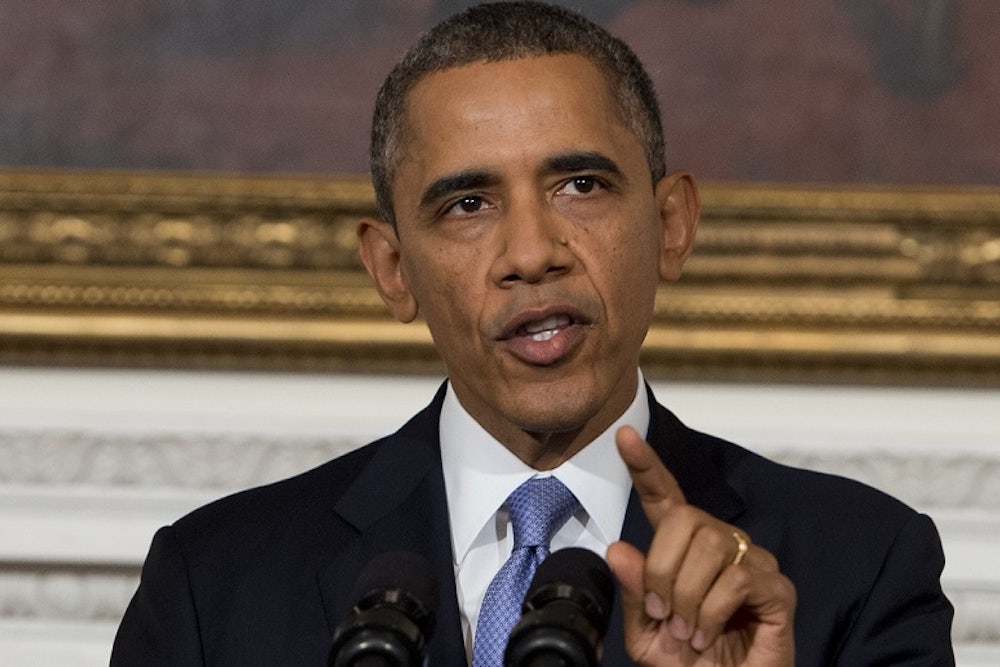The president's budget for next year will expand a series of tax credits for the middle class, the White House announced on Monday evening. And it will pay for them with higher taxes on the rich. Nobody expects the proposals, as written, to become law. But they have some intriguing parallels to ideas now in circulation on the Republican side. They are, in other words, the kind of proposals that might be the start of real, bipartisan negotiations—if only this were a normal political time.
The budget becomes public on Tuesday. And the most notable tax proposal will be one that Obama unveiled in his State of the Union address: An expansion of the earned income tax credit, which effectively boosts the paychecks of lower- to middle-income people who are working. The program, which experts have praised and at times has enjoyed strong bipartisan support, has come in for some criticism lately—in part because childless adults don't benefit much from it. Currently, childless adults can collect a maximum of $496 in EITC benefits. A parent with two children can collect more than 10 times that ($5,460). No childless adult under the age of 25 is eligible to collect the credit at all.
It is unclear exactly what the expansion of the EITC will look like, but the White House says it will be targeted so that childless adults and younger workers can reap the benefits of it as well. The Obama administration says that the plan would lift half a million people out of poverty and is paid for “by closing tax loopholes that let high-income professionals avoid the income and payroll taxes everyone else has to pay.”
The administration points to two tax loopholes in particular. The first is the “John Edwards/Newt Gingrich” loophole that allows high-income Americans to avoid payroll taxes. The second is the “carried interest” loophole, which allows hedge fund and private equity executives to treat their income as capital gains and thus pay the lower tax rate on it.
Republicans have also proposed altering the EITC, so that childless adults could benefit. But early proposals, like one from Senator Marco Rubio, would have helped those childless adults only by reducing benefits for families getting the tax credit. Last week's proposal, from House Ways and Means Chairman Dave Camp, would also have given childless adults a larger tax credit while reducing benefits for working families. The Center on Budget and Policy Priorities found that Camp’s reforms of the EITC and Child Tax Credit could end up costing working families $2,000 a year.
But that's just one piece of Camp's plan. Together with other changes Camp has proposed - most notably the reduction in individual tax rates - his plan would be progressive Camp also proposes closing the "carried interest" loophole. In fact, for all of the differences between the two—and there are many—the two plans reflect some of the same impulses.
Republicans leaders shelved Camp’s plan before he even released it. And they have indicated that Obama's budget is dead on arrival. But a long time ago, both Camp's and Obama's proposals would get serious hearings. Maybe this is one small step towards restoring that kind of political environment.
